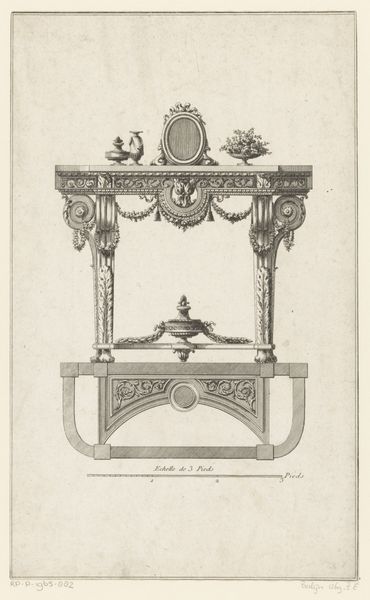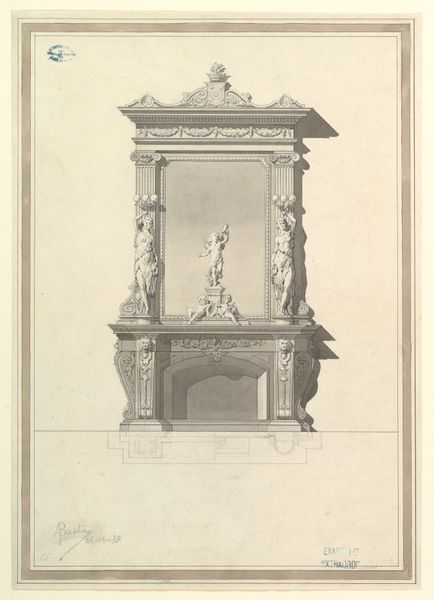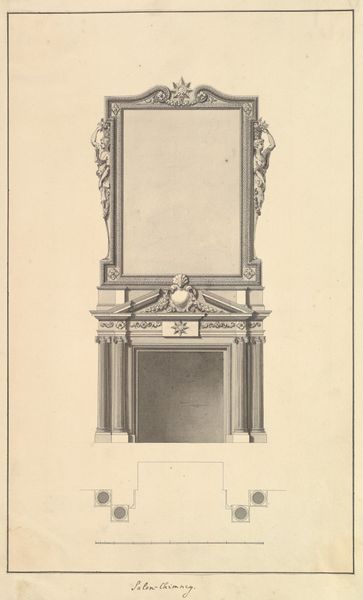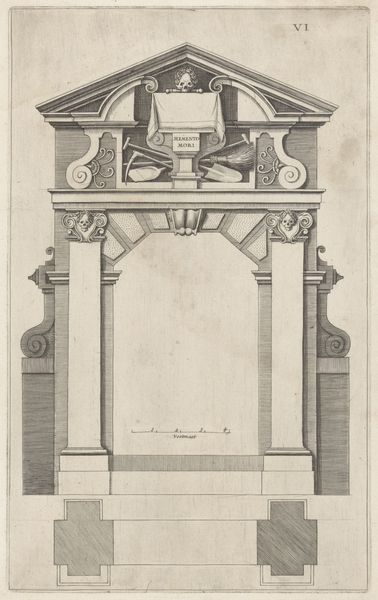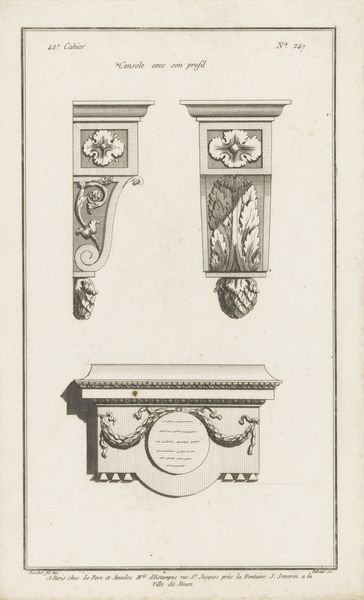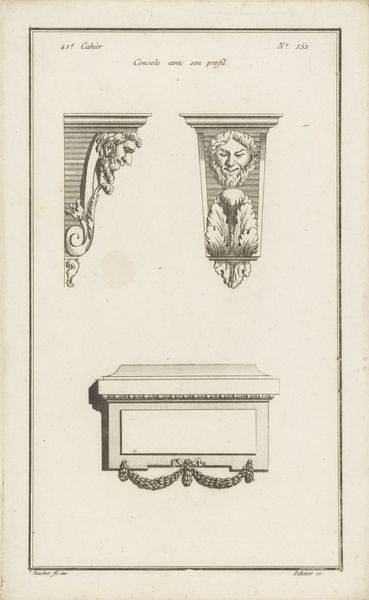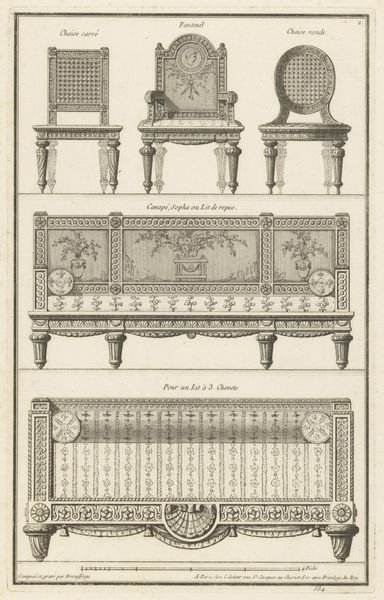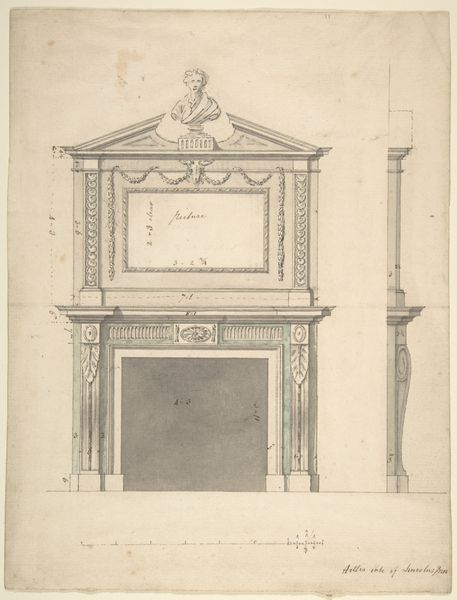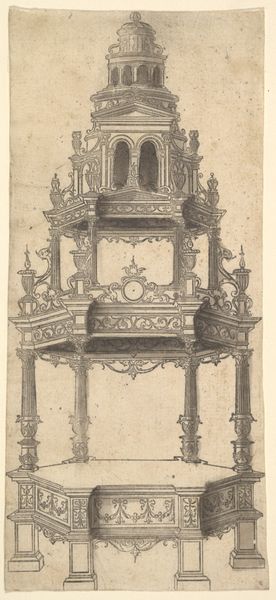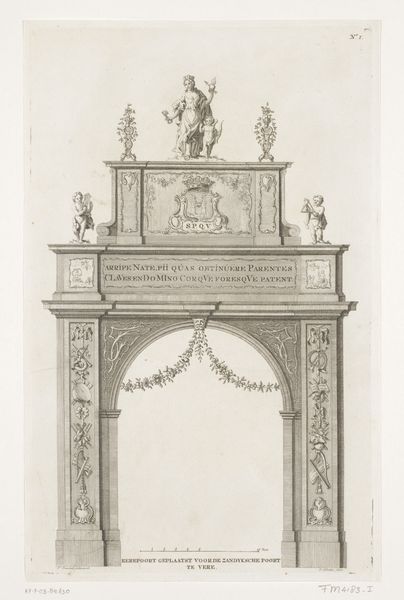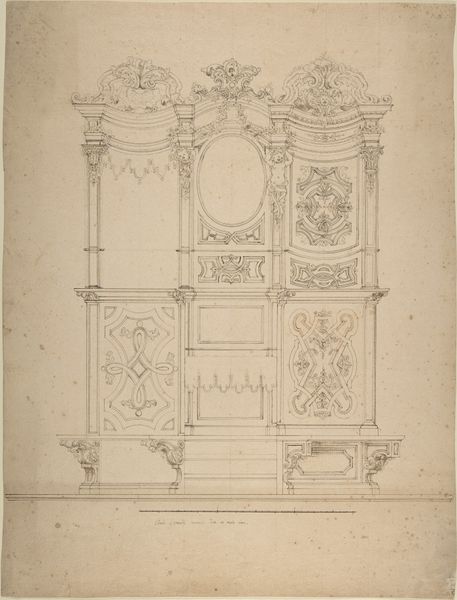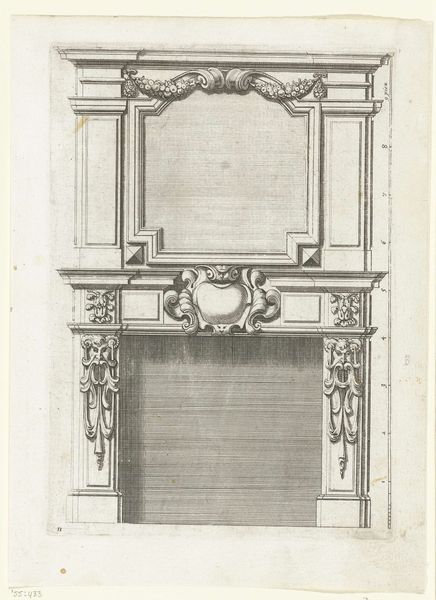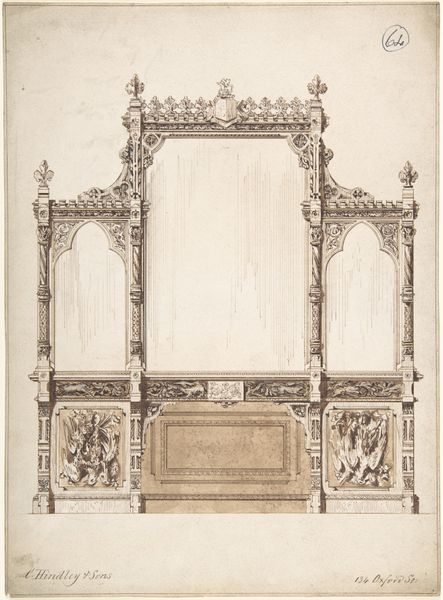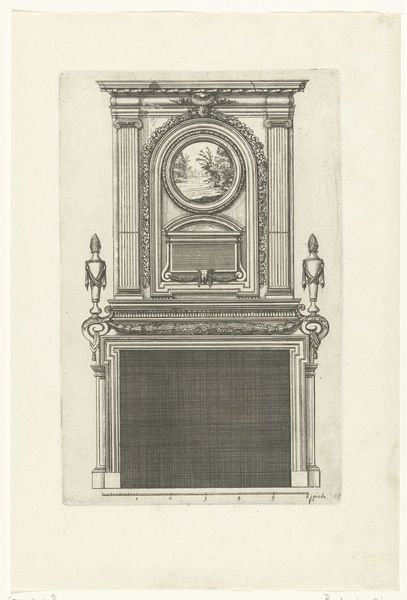
drawing, engraving
#
drawing
#
neoclacissism
#
form
#
geometric
#
classicism
#
line
#
engraving
Dimensions: height 323 mm, width 201 mm
Copyright: Rijks Museum: Open Domain
This drawing of a rectangular table was made by Augustin Foin, sometime in the mid-18th century. The print is made using an engraving process. Incising lines onto a metal plate is highly skilled work; in Foin’s time, these linear designs were a mainstay of the print industry. Look closely and you can see how this process informs the image's appearance. The crisp lines create a sense of precision, ideal for representing fashionable furniture. The texture is smooth, but the cross-hatching adds depth, suggesting the play of light on the table’s surface. Though just a sketch, the design is remarkably detailed. Note the decorative garlands, medallions, and tapering legs - features that would have demanded a high level of craftsmanship in the execution. In the 1700s, such drawings were crucial for disseminating design ideas and fueling consumer demand. Prints like these are a reminder of how artistic skill, coupled with sophisticated techniques, could drive both taste and the economy.
Comments
No comments
Be the first to comment and join the conversation on the ultimate creative platform.
